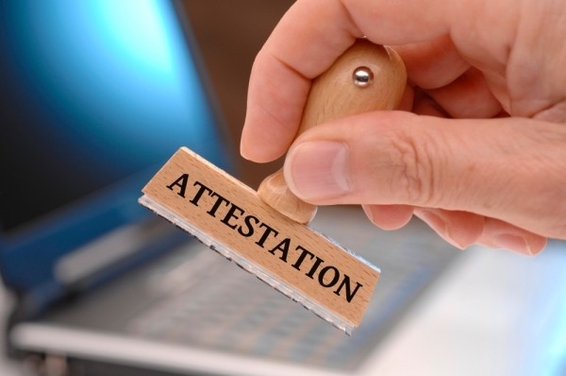When individuals or families decide to pursue opportunities abroad—whether for work, study, or long-term settlement—one of the most critical aspects of the immigration process is ensuring the authenticity of their documents. This verification, commonly known as attestation, involves validating the authenticity of important documents, such as educational certificates, marriage certificates, and professional credentials. Among various attestations, the Ministry of Foreign Affairs (MOFA) attestation holds particular significance as it serves as the final stamp of authenticity on documents originating from the applicant’s home country. Here, we explore why MOFA attestation is crucial, how it impacts immigration processes, and what applicants need to understand to ensure a seamless journey abroad.
1. Understanding Ministry of Foreign Affairs Attestation
MOFA attestation is a process whereby documents issued by a local, regional, or national authority in one country are verified and validated by that country’s Ministry of Foreign Affairs. This verification confirms that the documents are genuine and were issued by recognized institutions or authorities. Typically, the attestation process involves multiple steps, starting with authentication by local or regional authorities and culminating in MOFA certification. This sequence ensures that all necessary agencies recognize the document’s validity before it is presented in another country for immigration or other official purposes.
2. Why Attestation is Needed in Immigration
Immigration authorities in destination countries need to verify applicants’ credentials, identities, and background information. This process minimizes the risk of fraud and ensures that only genuine documents are accepted. Without a proper attestation process, it would be difficult for immigration officials to verify the authenticity of documents, particularly those issued in a foreign language or under a different legal system. MOFA attestation serves as the bridge, making foreign documents legally acceptable in other jurisdictions by confirming their validity in the country of origin.
3. Key Reasons for MOFA Attestation in Immigration
A. Validation of Identity and Background
One of the primary reasons MOFA attestation is crucial is the validation of an individual’s identity and background. When applying for immigration, applicants must submit identity documents, marriage certificates (if applicable), educational qualifications, and other personal documents. MOFA attestation verifies that these documents are legitimate and have not been tampered with. For instance, a birth certificate validated by the Ministry of Foreign Affairs confirms an applicant’s age and identity, which is often a fundamental requirement for visa issuance.
B. Acceptance of Educational Qualifications
For students or skilled professionals planning to study or work abroad, educational qualifications are often scrutinized by the destination country. The Ministry of Foreign Affairs attestation on educational certificates assures the host country that these qualifications are authentic and that the applicant is indeed qualified for their chosen profession or course of study. This attestation is particularly crucial in competitive fields like medicine, engineering, and law, where unverified or counterfeit credentials could have significant consequences.
C. Verification of Marital and Family Status
When families apply for immigration, proof of relationships is often required, especially for spouse visas, dependent visas, or family reunification applications. A marriage certificate, for instance, must be attested by the MOFA to confirm the legitimacy of the marriage. This verification reassures immigration officials that family members are indeed related, preventing misuse of the immigration system. Furthermore, divorce certificates, death certificates, and other personal documents related to family status must also go through MOFA attestation to be legally recognized abroad.
D. Supporting Employment Visa Applications
For employment visa applications, MOFA attestation is indispensable. Employers in foreign countries require verified documents to confirm an applicant’s qualifications, work experience, and professional certifications. This attestation provides assurance to employers and immigration officials that the candidate’s credentials are accurate and recognized by the home country’s authorities. Without this level of attestation, individuals may find it challenging to secure employment-based visas, as employers may be reluctant to accept unverified documents.
E. Establishing Trustworthiness for Business and Investment Visas
For investors or businesspersons seeking to establish a business or invest in another country, their financial and legal documents must undergo MOFA attestation. This process ensures that documents such as bank statements, financial records, and business licenses are legitimate and that the individual’s business activities are recognized and verified by the home country’s Ministry of Foreign Affairs. Such verification builds trust, making it easier for applicants to obtain business visas or investor permits.
4. The MOFA Attestation Process
While the exact process for MOFA attestation may vary slightly from one country to another, it typically involves several stages:
-
Initial Verification: Local authorities or notaries verify the document at the regional level. For educational documents, this might involve certification by the relevant education board or university.
-
Authentication by Government Bodies: Once verified at the regional level, documents are submitted to a relevant national authority. For instance, in some countries, documents must go through the Ministry of Education or Home Department before proceeding to the MOFA.
-
Ministry of Foreign Affairs Attestation: Finally, the document is submitted to the Ministry of Foreign Affairs for attestation. This stamp of authenticity from the MOFA indicates that the document has passed all previous levels of verification and is now officially recognized as authentic by the government.
-
Embassy or Consulate Attestation (if required): In some cases, the process may include an additional step where the document is further attested by the embassy or consulate of the destination country. This final stamp allows the document to be accepted without question in the destination country.
5. The Consequences of Skipping MOFA Attestation
Failing to obtain MOFA attestation can lead to serious consequences for applicants. Immigration authorities may reject applications if they identify documents lacking proper attestation. For instance, a student applying for a study visa without MOFA-attested educational documents may face delays or rejection. Similarly, an employee attempting to work abroad without attested work certificates risks facing scrutiny, which could lead to a denial of entry or work permits.
Moreover, unverified documents can create legal complications, both for the applicant and their potential employer or educational institution. The inability to prove the authenticity of documents can lead to legal battles, financial loss, and even deportation.
6. Simplifying the Attestation Process for Applicants
Navigating the attestation process can be complex, especially for first-time applicants who may be unfamiliar with the requirements of each stage. Consulting with a certified attestation service provider can help streamline the process by ensuring that all necessary steps are completed efficiently. These service providers handle document submission, tracking, and follow-up, which can save applicants valuable time and ensure that their documents are attested correctly.
In recent years, some countries have moved toward digital attestation services, where documents can be authenticated through online portals. While this option may not be universally available, it has simplified the process in certain regions and could become more widely adopted in the future.
7. The Future of MOFA Attestation in a Globalized World
As globalization continues to increase the flow of people across borders, governments are likely to refine and streamline attestation processes. There is a growing interest in developing standardized international attestation practices to reduce delays and enhance mutual trust between countries. Efforts like blockchain-based verification and digital attestation systems are emerging as innovative solutions to streamline and secure document verification in the digital age.
8. Conclusion
MOFA attestation remains a cornerstone of the immigration process for individuals aspiring to work, study, or settle abroad. By providing the final seal of authenticity, MOFA ensures that an applicant’s documents are genuine, valid, and ready for acceptance in the destination country. This verification supports the integrity of immigration systems and enhances trust between governments and individuals.
While the attestation process can be complex, understanding its importance and following the required steps can help applicants avoid delays and setbacks. For those pursuing international opportunities, MOFA attestation is more than just a bureaucratic requirement; it is a testament to the authenticity and trustworthiness of their journey. As global mobility increases, streamlined attestation processes will continue to play a pivotal role in enabling smoother, more efficient immigration for all.















